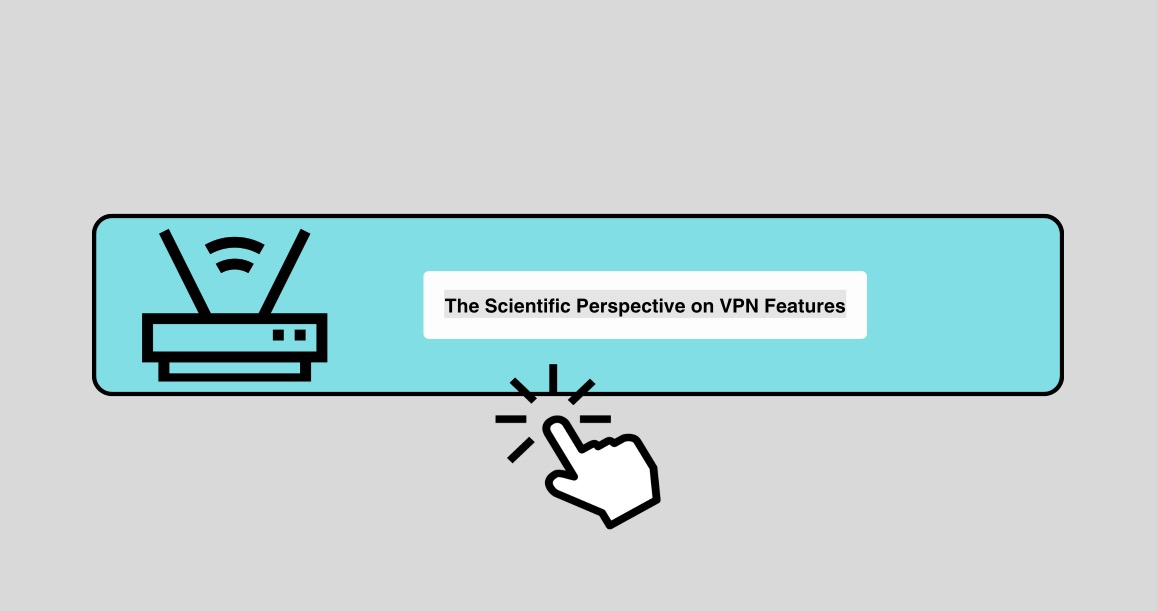Virtual Private Networks (VPNs) are increasingly popular tools in the digital age, offering users enhanced privacy, security, and access to content. This essay explores the features of VPNs from a scientific standpoint, examining their architecture, encryption methodologies, impact on network performance, and implications for data privacy.
Introduction
In the digital era, the need for secure and private internet browsing has become paramount. Virtual Private Networks (VPNs) have emerged as a leading solution to meet this need. By understanding VPNs through a scientific lens, we can appreciate the complexity and efficacy of these tools.
VPN Architecture
At the core of VPN technology is its architecture, which consists of several key components:
Tunneling Protocols
Tunneling protocols are fundamental to VPNs. They create a secure “tunnel” through which data travels. Major tunneling protocols include:
- Point-to-Point Tunneling Protocol (PPTP): One of the oldest VPN protocols, PPTP uses a control channel over TCP and a GRE tunnel operating to encapsulate PPP packets.
- Layer 2 Tunneling Protocol (L2TP): Often used in conjunction with IPsec for enhanced security, L2TP is a more secure option compared to PPTP.
- OpenVPN: Highly configurable and known for its strong security features, OpenVPN uses SSL/TLS for key exchange and can traverse firewalls and network address translators (NATs).
- IKEv2/IPsec: Known for its speed and stability, IKEv2/IPsec is particularly effective on mobile devices, seamlessly reconnecting after network interruptions.
Encryption Mechanisms
Encryption is a critical feature of VPNs, ensuring that data remains confidential and protected from unauthorized access. VPNs employ various encryption protocols, including:
- AES (Advanced Encryption Standard): Widely regarded as the gold standard in encryption, AES is used by many VPN services due to its balance of security and performance.
- Blowfish: An alternative to AES, Blowfish offers strong encryption but is less commonly used in modern VPN services.
- RSA (Rivest-Shamir-Adleman): Employed for secure key exchanges, RSA is an asymmetric cryptographic algorithm essential for establishing secure connections.
Impact on Network Performance
While VPNs offer enhanced security and privacy, they can also impact network performance. Understanding this impact is crucial for both users and network administrators.
Latency and Bandwidth
VPNs can introduce additional latency and affect bandwidth due to the extra steps involved in encrypting and routing traffic. Factors influencing this include:
- Server Location: The physical distance between the user and the VPN server can significantly affect latency.
- Encryption Overhead: Stronger encryption protocols, while more secure, can also introduce more processing overhead, affecting speed.
- Server Load: The number of users connected to a VPN server can impact its performance, with overloaded servers leading to slower connections.
Performance Optimization
Despite potential drawbacks, VPN performance can be optimized through various techniques:
- Selecting Optimal Servers: Choosing servers geographically closer to the user can reduce latency.
- Load Balancing: Distributing user connections across multiple servers can prevent any single server from becoming a bottleneck.
- Optimized Protocols: Using more efficient protocols, such as WireGuard, can enhance performance without sacrificing security.
Data Privacy and Security
VPNs play a crucial role in enhancing data privacy and security, but their effectiveness depends on several factors.
Privacy Policies
A VPN’s privacy policy is critical in determining how user data is handled. Key considerations include:
- No-Logs Policy: Many VPN providers advertise a no-logs policy, meaning they do not store user activity data. This is essential for ensuring user privacy.
- Jurisdiction: The legal jurisdiction under which a VPN operates can affect its privacy policies. For example, providers in countries with stringent data retention laws may be required to log user data.
Security Features
Beyond encryption, VPNs offer various features to enhance security:
- Kill Switch: This feature automatically disconnects the user from the internet if the VPN connection drops, preventing unprotected data transmission.
- DNS Leak Protection: Ensuring that DNS requests are routed through the VPN, rather than the user’s ISP, prevents DNS leaks and maintains privacy.
- Multi-Hop VPN: Also known as double VPN, this routes traffic through multiple VPN servers for added security, making it harder to trace the user’s activity.
Scientific Evaluation of VPN Efficacy
Evaluating the efficacy of VPNs scientifically involves rigorous testing and analysis of their features.
Security Testing
Security testing of VPNs involves assessing their resistance to various types of attacks, such as:
- Man-in-the-Middle (MitM) Attacks: Ensuring that the VPN effectively prevents interception of data by unauthorized parties.
- IP and DNS Leaks: Testing whether the VPN adequately protects against accidental exposure of the user’s IP address and DNS queries.
- Encryption Strength: Evaluating the robustness of the encryption protocols used to protect data.
Performance Benchmarks
Performance benchmarks are essential for understanding the real-world impact of using a VPN. These benchmarks typically measure:
- Speed Tests: Comparing download and upload speeds with and without the VPN.
- Latency Tests: Measuring the increase in latency introduced by the VPN.
- Reliability Tests: Assessing the stability of the VPN connection over time and under different network conditions.
User Experience
The user experience is a critical factor in the adoption and effectiveness of VPNs. This involves evaluating:
- Ease of Use: Assessing the simplicity of the VPN application interface and the ease of configuration.
- Compatibility: Ensuring that the VPN works seamlessly across various devices and operating systems.
- Customer Support: The availability and quality of customer support can significantly impact the overall user experience.
The Future of VPN Technology
The future of VPN technology is likely to be shaped by advances in related fields, such as:
Quantum Computing
Quantum computing poses both challenges and opportunities for VPNs. On one hand, quantum computers could potentially break current encryption standards, necessitating the development of quantum-resistant algorithms. On the other hand, quantum encryption techniques could vastly enhance the security of VPNs.
Artificial Intelligence (AI)
AI can be leveraged to improve VPN performance and security. For example, AI algorithms can optimize server selection and load balancing, detect and mitigate security threats in real-time, and enhance user experience through smarter, adaptive interfaces.
5G and Beyond
The rollout of 5G networks and future advancements in wireless technology will influence VPN usage. Higher speeds and lower latency offered by 5G can mitigate some of the performance drawbacks of VPNs, making them more attractive for a wider range of applications, including mobile and IoT devices.
Conclusion
VPNs are complex and multifaceted tools that offer significant benefits in terms of security, privacy, and access to information. By understanding the scientific principles underlying VPN technology, users can make informed decisions about the services they use and appreciate the ongoing advancements in this field. As technology continues to evolve, VPNs will likely remain an essential component of the digital landscape, adapting to meet new challenges and opportunities.
Topics #VPN



